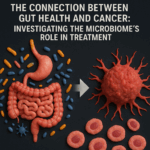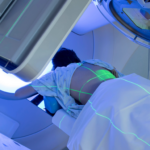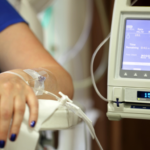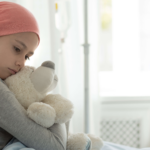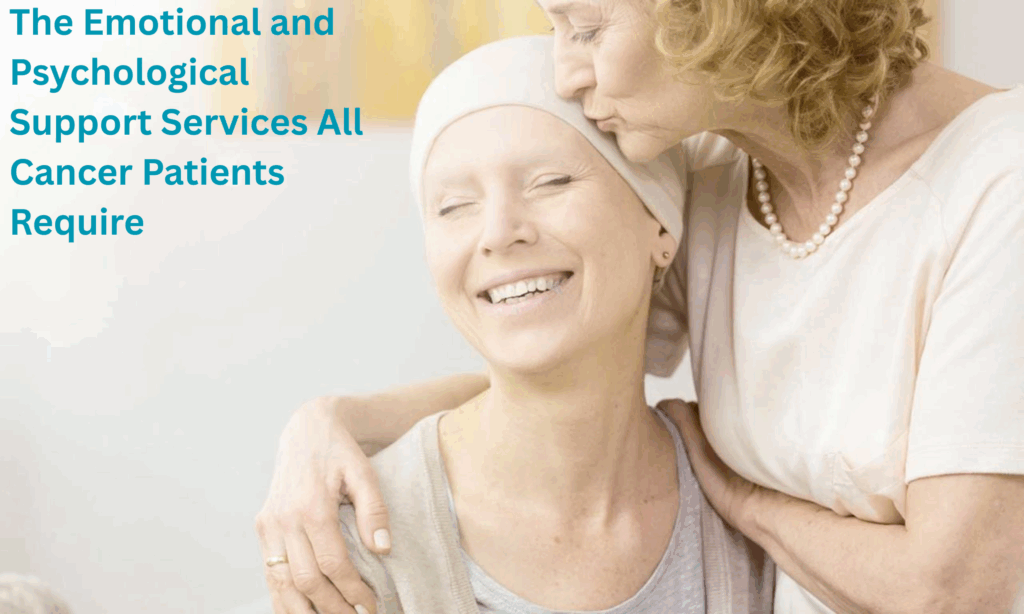
A diagnosis of cancer can be one of the toughest experiences a person can have, not only physically but also emotionally and psychologically. Although medical treatments are becoming more effective at improving survival rates and quality of life, the emotional toll of cancer is still considerable. Support services that are aimed at overcoming these emotional and psychological issues are as important as medical treatment in helping patients cope with their journey with strength, hope, and resilience.
Understanding the Emotional Burden of Cancer
Receiving a diagnosis of cancer is a life-changing experience that can make people feel stunned, afraid, anxious, and sometimes isolated. The unknown nature of the treatment process, side effects, and chance of recurrence may cause a variety of emotional reactions, ranging from shock and grief to anger and guilt. To many patients, this emotional load is as hard to handle as the physical distress of cancer itself.
Psychological distress can take many forms, such as depression, anxiety, and post-traumatic stress disorder (PTSD), so it is necessary to cater to not only the body’s requirements but also the mind’s. Cancer patients are usually confronted with an intricate web of feelings and hence emotional and psychological support services are imperative.
Important Emotional and Psychological Support Services
Psychological Counseling and Therapy
Psychological counseling is the easiest and most effective kind of support, assisting individuals with emotional and mental health issues.. Trained counselors or therapists specializing in cancer care can offer a secure environment for patients to ventilate their emotions, work through their feelings, and learn coping mechanisms. Cognitive-behavioral therapy (CBT), mindfulness exercises, and other forms of therapy enable patients to learn about and control their emotional reactions, decrease anxiety, and enhance overall mental health.
Cancer patients usually experience helplessness and loss of control. Therapy sessions can help enable patients to regain control, emphasizing their power to control their emotions and reactions throughout the course of treatment and recovery.
Support Groups
Support groups are crucial in giving emotional support and a sense of belongingness to cancer patients, making them feel heard and not so alone.
. It is often greatly healing to share experiences with people who are aware of the burdens of living with cancer. Support groups, both on-site and virtual, provide a means through which patients can freely discuss their fears, achievements, and failures. Support groups not only give hope but provide opportunities for people to learn from others who are living through the same experience.
Peer support creates a sense of belonging and normalcy, which can be particularly reassuring for patients who may feel alone as a result of the nature of their illness. Sharing with others who have endured or are enduring similar challenges can alleviate feelings of loneliness and create a source of emotional strength.
Family and Caregiver Support
Emotional health of cancer patients is directly associated with the support provided by caregivers and family members. Providing emotional support to family members and caregivers is equally significant because they are also impacted by the diagnosis. Some cancer treatment centers provide family counseling sessions to educate family members about the emotional and psychological components of the disease and assist them in giving the best possible care to their loved one.
Open communication and empathy between the caregivers and the patients assist in building a caring environment where patients feel safe and heard. If the caregivers are more capable of managing their own emotional reactions and assisting the patient, it provides a better experience for all the parties involved.
Mindfulness and Relaxation Techniques
Many patients with cancer undergo physical pain and emotional distress which can be addressed through relaxation maneuvers like guided imagery, meditation, and breathing practices. These actions can ease anxiety, induce rest, and help improve mental sharpness. Practices of mindfulness prove to be handy in coping with the uncertainty faced during cancer care, enabling individuals to stay within the moment and develop a calming sense.
By integrating mindfulness into everyday activities, patients can develop a better sense of control over their emotional reactions, allowing them to more easily manage the difficulties associated with cancer treatment.
Art and Music Therapy
Art and music therapy are proving to be incredibly valuable modes of emotional and psychological care for cancer patients. They provide the patient with a way to express their emotions non-verbally, allowing for some emotions to be put into perspective without words. Art and music therapy also provide a distraction, a way for patients to leave the stress of treatment behind and be absorbed in something that is relaxing and enjoyable.
Spiritual Support
For most cancer patients, spirituality can be an important source of strength and solace. Spiritual support services like having access to chaplains, religious counselors, or spiritual counselors offer patients a chance to examine their faith, find significance in their condition, and associate with a greater power. Whether through prayer, meditation, or other spiritual practices, having a support system that respects and cares for one’s spiritual needs can go a long way in helping maintain emotional resilience throughout cancer treatment.
Conclusion
Cancer treatment is certainly not easy, but with the proper emotional and psychological support, patients can find hope and strength even at their most difficult moments. Psychological counseling, support groups, mindfulness exercises, and family support all come together to create a holistic approach to cancer care that addresses the entire person – not the disease. By treating the emotional and psychological aspects of cancer patients, we enable them to meet their journey with courage, dignity, and enhanced quality of life.
Summary
Cancer diagnosis affects not only the body but also the patient’s emotional and psychological well-being. The psychological impact of cancer can cause stress, depression, and anxiety, and therefore, emotional and psychological support is important in treatment. Psychological counseling, support groups, family and caregiver support, mindfulness strategies, art and music therapy, and spiritual care are primary services. The services assist the patient in handling their emotions, decreasing loneliness, and improving coping skills during treatment.
For the victims of emotional distress and cancer, getting professional help is essential. Dr. Jagdish Shinde, an oncologist at the Cancer Care Clinic in PCMC, Pune, deals with lung cancer treatment and provides advanced radiation therapy to provide complete care. Early diagnosis and early consultation with specialists are essential in treating the disease properly.
